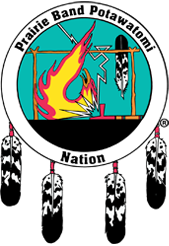December 02, 2012 –
Tribal Nations Send Message about “Fiscal Cliff”
in Advance of White House Tribal Nations Summit
Washington, DC – Embassy of Tribal Nations – In advance of the 2012 White House Tribal Nations Summit this Wednesday, Native leaders are weighing in on the effect the fiscal cliff will have on the 566 federally recognized tribal nations and American Indian and Alaska Native citizens. A joint tribal letter sent last week to Senate Majority Leader Harry Reid, Senate Minority Leader Mitch McConnell, Speaker of the U.S. House of Representatives John Boehner, and House Minority Leader Nancy Pelosi, signed by the National Congress of American Indians (NCAI) and 65 tribes and tribal organizations, outlines the risk of deep sequestration cuts to the already underfunded federal responsibilities to tribal nations.
“Tribal nations are part of the American family of governments, and we know everyone in that family must identify budget efficiencies to keep America moving forward. However, the federal responsibility to tribal nations is not driving the deficit. In fact tribal programs, as part of the discretionary budget, have already done their part to reduce the deficit following the recommendations of the Simpson-Bowles commission and enacted through the bipartisan Budget Control Act. Federal responsibilities are already significantly underfunded and the problems we are working hard to confront will only be exacerbated if treaty obligations are treated as line items,” said Jefferson Keel, President of NCAI.
“Tribal programs make up a miniscule part of the federal budget – for example the Indian Health Service is 0.12% of federal spending and Bureau of Indian Affairs is 0.07%,” Keel continued. “An 8.2% across the board cut would mean deep cuts to critical tribal programs and will disproportionately impact already vulnerable Native communities. Tribal leaders are calling on the President, Congress, and leaders throughout the federal government to sustain current investments in critical infrastructure and support. Any deal, either in a short term framework or final bargain should not cut domestic spending, especially trust responsibility programs, any further. Tribal governments also urge Congressional action to advance tribal taxing jurisdiction. Until all tribes retain exclusive taxing jurisdiction within their tribal lands, federal support remains critical to ensure essential government services are delivered to tribal people and the trust responsibility is honored.”
The letter to Senate and House leaders identified exactly how cuts would impact Indian Country and called for leadership to secure and protect tribal communities by upholding commitments to health care, education, public safety, energy development, and infrastructure like housing, roads, and broadband, which are all in the non-defense discretionary portion of the federal budget. The letter outlines where cuts would impact specific American Indian and Alaska Native programs.
Using the estimate of 8.2% reductions just for the first year of sequestration, many tribal programs will face difficult reductions below FY2010 levels, when adjusted for inflation. NCAI estimates that if sequestration were implemented, the percentage cuts from fiscal-year 2010 Native programs (when adjusted for inflation) would be:
- Native American Job Training, cut by 23%
- Low Income Home Energy Assistance Program (LIHEAP), Tribes, cut by 35%
- Vocational Rehabilitation State Grants, Tribes, cut by 25%
- Indian Housing Block Grant cut by 21%
- Indian Student Education cut by 13%
- Tribal Community Oriented Policing Grants cut by 25%
- Bureau of Indian Affairs (BIA), Trust Natural Resources cut by 24%
- BIA, Operation of Indian Programs cut by 14%”
Health care and public safety are two examples where NCAI and tribal nations fear major progress in recent years could be reversed by deep budget cuts.
The 2010 passage of the Tribal Law and Order Act ushered in a new era where tribal nations are empowered to advance public safety in their communities. Before these changes took effect, data from 2000 to 2010, showed that homicides in Indian country rose 41% and rapes increased 55%. The Bureau of Indian Affairs’ Safe Indian Communities initiative, a two-year program that included targeted community policing, achieved a 35% overall decrease in violent crime across the four communities. Cuts to vital programs at Department of Interior for tribal law enforcement and funding for tribal courts under the Department of Justice will thwart emerging initiatives and significantly reduce critical funding for basic justice services.
Indicators in Indian Country highlight concerning disparities in health care for tribes, yet also show incremental progress in quality of life and health care. For example, according to the Center for Disease Control, the diabetes prevalence rate of 16.1% in American Indian and Alaska Native adults is almost twice the rate of 8.3% for the total U.S. adult population. At the same time, since 1973 Indian life expectancy has increased by approximately 9 years according to the Indian Health Service (IHS).
The sequester would be a setback to tribes and the IHS , which serves 2.1 million American Indians and Alaska Natives and is critically underfunded. The Cherokee Nation of Oklahoma estimates that if the sequester hits IHS funding, 83,000 patients would not be seen, 127 jobs would be lost, and a clinic may have to close. 1,000 fewer diabetes patients would be provided equipment, medicine and monitoring and 12,700 fewer people would be educated.
The 2012 White House Tribal Nations Summit is the fourth annual nation-to-nation meeting hosted by President Obama and his Administration in as many years. During the day long meetings with federal agencies, tribal leaders will be discussing a range of transformative actions the President can take to partner with tribal nations to advance economic security and expand prosperity for Native peoples and all Americans. Many of these include no-cost opportunities to improve conditions in Indian Country through means such as increased flexibility for tribal governments for improving energy development on tribal lands, restoring tribal lands for economic development, and protecting Native women through the Violence Against Women Act (VAWA) which provides enhanced tribal jurisdiction over crimes against Native women on tribal lands.
